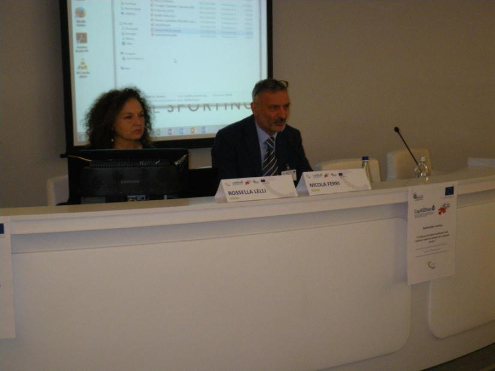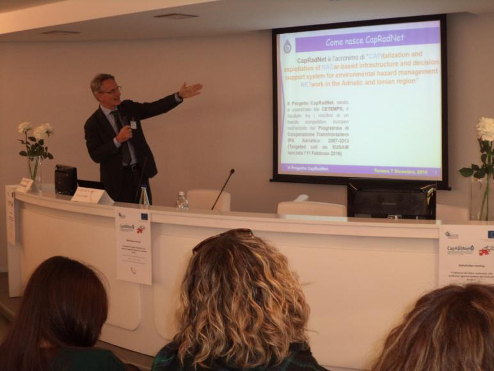On December, 7th in Teramo (Italy), the Istituto Zooprofilattico Sperimentale dell’Abruzzo e del Molise "G. Caporale" (IZSAM) organised a national stakeholder meeting to present the project results planned in the action 3.1 and 3.5.
The event entitled "The influence of environmental factors on hygienic conditions of the bivalve molluscs" was aimed at involving all stakeholders in the field of control and production of bivalves. At the end of the meeting a useful discussion on future joint activities under EUSAIR, was held.

Stakeholder representatives from Adriatic area attended the event, in particular Competent Authorities, universities, research institutes, farmers and enterprises. Experts on aquaculture sector were invited to analyze the state of the art and all possible initiatives to progress beyond it.

Starting from the presentation of CAPS2 and ADRIARadNet projects, the meeting was then focused on the results of the feasibility study "Fresh water inflow estimation by using hydrological CHyM model and the influence on marine biodiversity" (3.1.1). The impact of weather events at hydrological scale on the hygienic conditions of bivalve molluscs harvested in the coastal area was simulated in a pilot area of Abruzzi region, around the mouth of Pescara river.

Moreover, the Seawetra portal, integrating CAPS2 web GIS, was introduced to the audience as a useful tool to visualize marine environmental data.
See more details in the meeting agenda.

